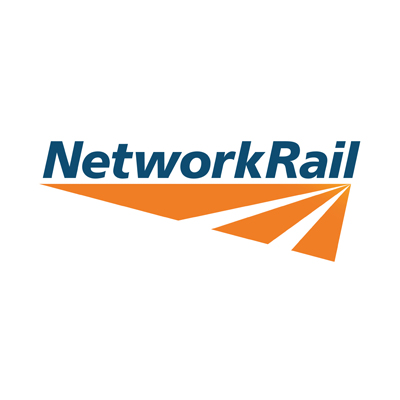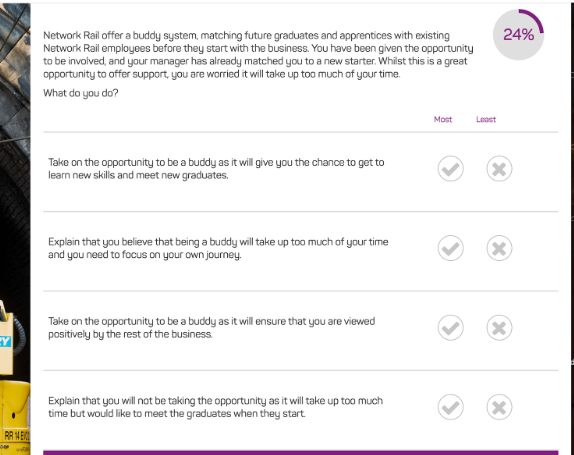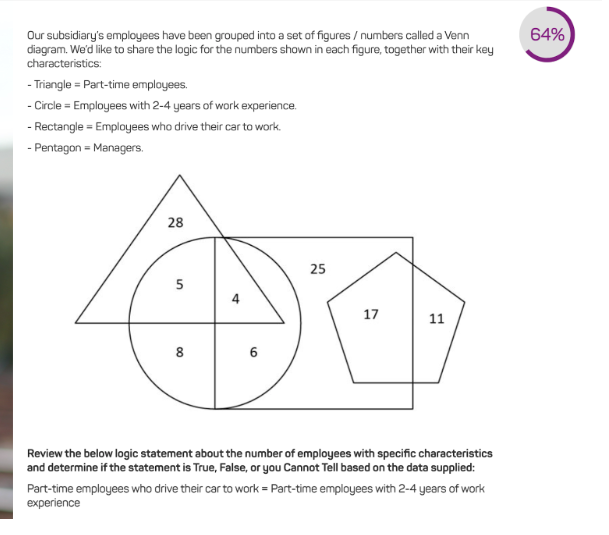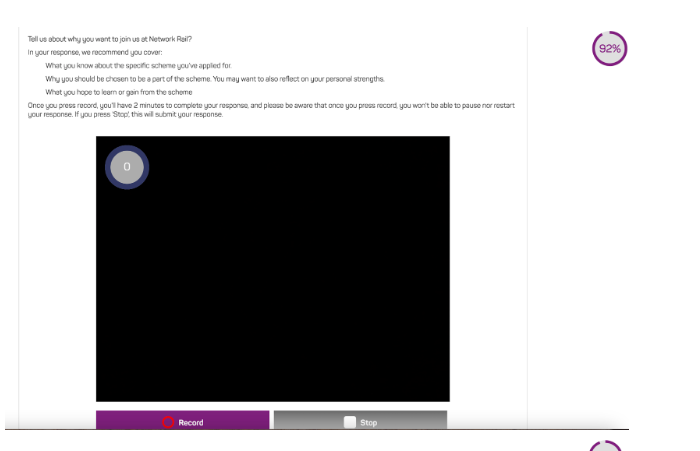Network Rail Online Assessment 2025/26

Network Rail online assessment answers PDF
- The Network Rail Online Assessment has 6 stages, the online assessment part is the actual Network Rail Interactive Assessment
- The Network Rail interactive assessment tests your grit and determination in a rapidly changing world
- The test evaluates your ability to embrace digital reality and knowledge gained from upskilling and education
- in total there are
- The Network Rail Interactive Assessment consists of:
- 40+ Challenge Questions
- 10+ scenario type Situational Judgment questions
- 4 Video Interview Questions, 2 min each
- Pattern Recognition (3 sets)
- Data Analysis Tasks
- Team Collaboration Tasks
- Technical Problem-Solving
Network Rail online assessment answers PDF
What Does the Network Rail Online Assessment Include?
Network Rail uses a variety of online assessments as part of their recruitment process. These tests, provided by SHL, help evaluate candidates' skills and competencies. The main components include:
- Situational Judgement Test (SJT)
- Numerical Reasoning Test
- Verbal Reasoning Test
- Inductive Reasoning Test (for engineering roles)
1. Network Rail Situational Judgement Test
The situational judgement test evaluates how well you align with Network Rail's values and required competencies. You'll be presented with workplace scenarios and asked to choose the most appropriate response.
Key aspects assessed include:
- Problem-solving abilities
- Decision-making skills
- Alignment with Network Rail's business ethics
- Understanding of professional conduct
Network Rail's Core Values:
- Empowered to ACT
- Always be safe
- Teamwork is key
- Care about people
Network rail online assessment free
Network Rail Practice Questions with Answers
Network Rail Situational Judgement Test

Scenario: You're offered a buddy system opportunity to mentor new graduates/apprentices, but you're concerned about time management.
Best Answer: "Take on the opportunity to be a buddy as it will give you the chance to get to learn new skills and meet new graduates."
Explanation:
- This is the best choice because:
- Shows initiative and willingness to develop others
- Demonstrates openness to learning new skills yourself
- Aligns with Network Rail's value of "Teamwork is key"
- Creates networking opportunities
- Reflects positively on your leadership potential
Worst Answer: "Explain that you believe being a buddy will take up too much of your time and you need to focus on your own journey."
Explanation:
- This is the worst choice because:
- Shows lack of team spirit
- Appears self-centered
- Misses development opportunity
- Could be seen as unwilling to support colleagues
- Doesn't align with Network Rail's collaborative culture
The question tests your ability to balance personal development with team support, which is crucial in Network Rail's workplace culture. The best approach is to embrace the opportunity while managing your time effectively, rather than declining due to time concerns.
Network Rail Practice Question
Network Rail Logical Reasoning Question

Let's break down the Venn diagram and the statement step by step:
Key Information from Diagram:
- Triangle = Part-time employees
- Circle = Employees with 2-4 years experience
- Rectangle = Employees who drive car to work
- Pentagon = Managers
The statement to evaluate is: "Part-time employees who drive their car to work = Part-time employees with 2-4 years of work experience"
Let's solve:
- Part-time employees who drive to work:
- This is the overlap between Triangle and Rectangle
- Looking at the diagram, this number is 4
- Part-time employees with 2-4 years experience:
- This is the overlap between Triangle and Circle
- Looking at the diagram, this number is also 4
Since both numbers are equal (4 = 4), the statement is TRUE.
To verify:
- Part-time drivers (Triangle ∩ Rectangle) = 4 employees
- Part-time with 2-4 years (Triangle ∩ Circle) = 4 employees
- Both categories contain exactly 4 employees
- Therefore, they are equal
The answer is: TRUE
This question tests your ability to:
- Interpret Venn diagrams
- Find overlapping regions
- Compare values
- Draw logical conclusions from visual data
2. Network Rail Numerical Reasoning Test
The numerical reasoning test assesses your ability to work with numbers and interpret data. You'll have 20 minutes to answer 20 questions.
Topics covered include:
- Percentages
- Ratios
- Data interpretation from tables and graphs
- Basic calculations
- Fractions
3. Network Rail Verbal Reasoning Test
This test evaluates your ability to understand and analyse written information. You'll have 15 minutes to complete 30 questions.
The test focuses on:
- Reading comprehension
- Critical analysis
- Logical deduction
- Understanding complex information
4. Network Rail Inductive Reasoning Test
For engineering roles, candidates must complete an inductive reasoning test. This assesses your ability to identify patterns and solve problems logically.
Key skills tested:
- Pattern recognition
- Logical thinking
- Problem-solving
- Abstract reasoning
Network rail online assessment answers
Network Rail pre recorded Video Interview Questions

Strong response for this Network Rail video interview question.
- Question: "Tell us about why you want to join us at Network Rail?"
- Here's a structured STAR response format for the 2-minute video:
Introduction (15-20 seconds): "I'm passionate about joining Network Rail because of its crucial role in maintaining and developing Britain's railway infrastructure, which impacts millions of lives daily."
Main Points (90 seconds):
- Company Values & Culture:
- Align with Network Rail's core values: Safety, Teamwork, Care about people
- Mention the Nolan Principles they follow
- Emphasize interest in their commitment to safety and innovation
- Career Development:
- Highlight Network Rail's investment in employee development
- Mention their extensive training programs
- Reference their commitment to technological advancement
- Social Impact:
- Express interest in contributing to sustainable transport
- Mention Network Rail's role in connecting communities
- Discuss their environmental initiatives
Key Tips for Recording:
- Dress professionally (business attire)
- Ensure good lighting and clear background
- Look directly at camera
- Speak clearly and confidently
- Use professional body language
- Stay within 2-minute time limit
Sample Script: "I'm excited about the opportunity to join Network Rail because of its vital role in maintaining Britain's railway infrastructure. The company's commitment to safety, innovation, and sustainable transport aligns perfectly with my professional values. I'm particularly impressed by Network Rail's investment in new technologies and their focus on employee development. The chance to contribute to projects that positively impact millions of daily commuters while working with a team dedicated to excellence is incredibly appealing. I've researched Network Rail's transformation programs and believe my skills in [specific relevant skills] would allow me to make meaningful contributions while growing professionally."
Remember:
- Stay authentic and enthusiastic
- Use specific examples
- Show you've researched the company
- Demonstrate alignment with their values
- Keep timeframe in mind (2 minutes)
How to Prepare for Network Rail Online Assessments
General Preparation Tips
- Practice Time Management
- Complete practice tests under timed conditions
- Learn to allocate time effectively per question
- Don't spend too long on difficult questions
- Create the Right Environment
- Find a quiet, well-lit space
- Ensure stable internet connection
- Have necessary materials ready (calculator, paper, pen)
- Understand the Format
- Familiarise yourself with question types
- Review sample questions
- Practice with similar tests
Test-Specific Preparation
For Situational Judgement Tests:
- Study Network Rail's values and ethics
- Review the Nolan Principles
- Practice professional judgment scenarios
- Consider safety and teamwork in your responses
For Numerical Reasoning:
- Review basic mathematics
- Practice calculating percentages and ratios
- Work on speed and accuracy
- Use practice tests to improve timing
For Verbal Reasoning:
- Improve reading speed
- Practice comprehension exercises
- Focus on drawing conclusions from text
- Work on accuracy under time pressure
For Inductive Reasoning:
- Practice pattern recognition
- Solve logic puzzles
- Work on spatial awareness
- Time yourself while solving problems
Network Rail Assessment Process Timeline
- Online Application
- Submit CV and personal information
- Complete initial screening questions
- Online Assessments
- Complete required tests
- Usually given 7 days to complete
- Video Interview
- Answer pre-recorded questions
- Focus on competency-based responses
- Assessment Centre (if successful)
- Group exercises
- Additional tests
- Final interview
Common Questions About Network Rail Online Assessments
Q: How long do I have to complete the online assessments?
A: Typically, you have 7 days from receiving the invitation to complete all online assessments.
Q: Can I retake the tests if I fail?
A: Network Rail usually requires a waiting period (often 6-12 months) before reapplying.
Q: What score do I need to pass?
A: Specific pass marks aren't published, but candidates typically need to score above average to progress.
Q: Are calculators allowed?
A: Yes, basic calculators are permitted for the numerical reasoning test.
Tips for Success
- Prepare Thoroughly
- Use practice tests
- Study Network Rail's values
- Review basic math skills
- Practice reading comprehension
- Test Day Strategy
- Choose a quiet time and place
- Check your technology in advance
- Read instructions carefully
- Keep track of time
- After the Tests
- Note areas for improvement
- Prepare for next stages
- Stay positive and professional
Conclusion
- Success in Network Rail's online assessments requires thorough preparation and understanding of the process.
- Focus on practicing each test type, understanding Network Rail's values, and developing your time management skills.
- Remember that these assessments are designed to find candidates who align with Network Rail's professional standards and have the necessary skills for their roles.
- Good luck with your Network Rail online assessment!




